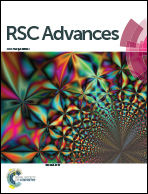Effects of agricultural waste-based conditioner on ultrasonic-aided activated sludge dewatering
Abstract
The effects of agricultural wastes on ultrasonic-aided activated sludge dewaterability were investigated in this study. Wheat straw powder (WSP), corn stalk powder (CSP) and rice hull powder (RHP) were used as physical conditioners. Several indicators, including capillary suction time (CST), specific resistance to filtration (SRF) and the dewatering process were adopted to characterize the sludge dewaterability. Soluble protein and filtrate polysaccharide were also characterized to estimate their function on sludge dewatering. The results showed that sludge dewaterability was greatly improved by adding WSP or CSP under an ultrasonic intensity of 28 kHz. The SRF was reduced from 1.0 × 109 S2 g−1 to 0.4 × 109 S2 g−1 (or less) with a dosage of more than 0.75 g/g dry solid (DS). The moisture content of the sludge cake decreased from 93% to 80% and from 94% to 79% by adding WSP and CSP with ultrasonication. However, no visible enhancements were observed in sludge dewaterability by adding RHP. Moreover, the addition of these agricultural wastes contributed to an increase in the high heating value of dewatered sludge, and ultrasonication further improved the sludge low heating value by reducing the moisture content. The synergistic mechanism of sludge conditioned by agricultural wastes and ultrasonication was attributed to agricultural wastes forming a permeable and rigid lattice structure and ultrasonication cracking the sludge structure.


 Please wait while we load your content...
Please wait while we load your content...